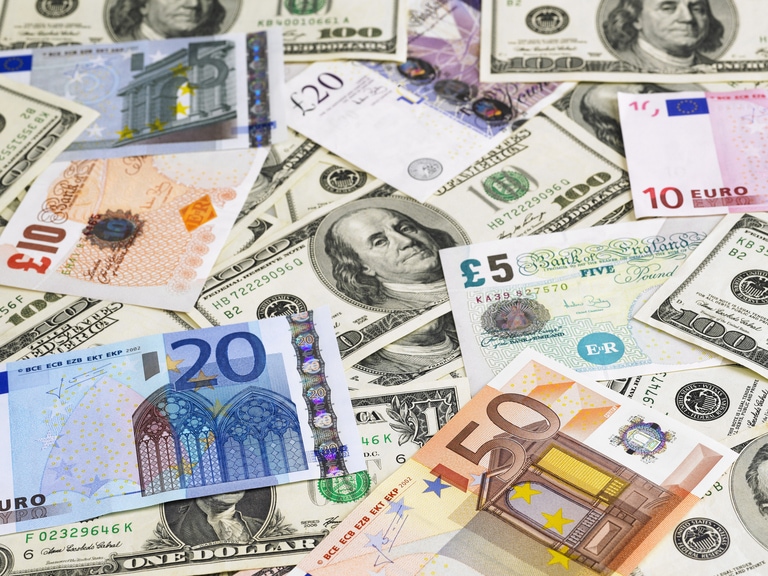It’s been a negative start to August for European markets with the DAX leading the way after some poor manufacturing PMIs, while BMW shares slid despite upgrading guidance on its full year outlook.
Europe
The negativity appears to be being sparked by a warning that higher costs in the construction of electric cars was likely to weigh on its free cashflow in the second half of the year.
Another weak set of Chinese PMIs also served to weigh on sentiment, along with commodity prices as markets try and establish whether Chinese authorities are serious about committing to more stimulus measures for its ailing economy.
Weighing on the FTSE100, the basic resource sector is acting as a drag, led by gold and silver miner Fresnillo after the Mexican miner which missed on H1 revenues, which came in at $1.34bn, while earnings also came up short at $351m, below forecasts of $403m. Pre-tax profit came in at $47.9m, a sharp fall from last years $155.2m and well short of predictions of $122.8m. The company blamed a big increase in costs which rose 19%, although Fresnillo maintained its full year guidance.
HSBC shares jumped to their highest levels in 4 years after announcing H1 profits that came in ahead of forecasts, as well as announcing a $2bn share buyback. Pre-tax profits for Q2 came in at $8.8bn, on the back of a 36% increase in revenues to $16.7bn, driven by a strong performance in both commercial banking, as well as in wealth services. The bank set aside a further $0.5bn in respect of non-performing loans.
In a sign that higher interest rates are influencing loan demand, customer lending decreased by $9bn in Q2, with $6bn of that coming from the UK bank. Customer account balances in Europe also fell by about $13bn, while net interest margin improved to 1.72%. On guidance HSBC raised their outlook for net interest income to above $35bn.
Engineering company Weir Group is also on the up after reporting a 31% increase in H1 adjusted pre-tax profit of £172m, on revenues of £1.3bn, while nudging its full year guidance on operating profit towards the upper end of analyst expectations.
BP shares are trying to cling onto gains, despite reporting an almost 70% decline in Q2 profits to $2.59bn, after the oil and gas company announced it was increasing the dividend by 10% and buying back $1.5bn of its own shares.
Diageo shares are hanging in there, despite reporting full year results that fell slightly short of expectations. These are the first set of results for new CEO Debra Crew who took the reins in the aftermath of the passing of Ivan Menezes in June, and show that despite profits falling short of forecasts, that demand is holding up reasonably well.
Net sales rose 11% to £17.1bn, despite volumes seeing a decline, helping to push profits attributable to shareholders up by 15% to £3.73bn. The dividend saw a 5% increase to 80p per share.
US
US markets took their lead from the weakness being seen in European markets, opening lower ahead of key July ISM manufacturing and June job openings numbers. These all came in below forecasts with headline ISM nudging higher to 46.4, with weaker prices paid and employment components, while job openings fell to their lowest level since April 2021.
Uber shares have slipped back, from 2-year highs, despite reporting a surprise profit in its Q2 numbers. Revenues rose by 14% to $9.23bn, while posting net income of $394m. Gross bookings rose by 16% to $33.6bn, with its mobility operation generating $16.73bn of that, a rise of 25%, while delivery accounted for $15.59bn, Uber said they expected Q3 bookings to come in between $34bn and $35bn, with adjusted EBITDA of about $1bn.
Electric truck maker Nikola pushed above $3 and 9-month highs today, after seeing a strong move higher yesterday on the back of its deal with transport services provider JB Hunt. A broker upgrade to $3 has seen the shares make further gains.
A sharp fall in Covid related sales saw Pfizer Q2 revenues come up short of expectations. Q2 sales came in at $12.73bn, a 54% decline from a year ago, with only $1.49bn in covid sales, an 80% fall from a year ago. Profits were better than expected, coming in at $0.67c a share. For 2023 full year sales guidance was tweaked lower to between $67-70bn, with covid sales expected to decline to $21.5bn.
FX
It’s been a strong start to the month for the US dollar, with the greenback appearing benefit from a general risk-off tone, with the biggest gains coming against the Australian dollar after the RBA left rates unchanged. The decision was finely balanced with many expecting a rate hike, however the Australian central bank appears to have erred on the side of caution, given last week’s weaker than expected Q2 CPI reading, and the weakness in recent PMI numbers.
The RBA also went on to alter their inflation forecast predicting that prices would return to target in late 2025, while also revising up their GDP growth targets for this year and next year. The central bank did keep the door open to further hikes in the future, however as with the Fed and ECB before it there does appear to be a belief that the RBA could well be done.
The Japanese yen has continued to lose ground against the US dollar despite last week’s tweak to policy by the Bank of Japan. It would appear the market wants to test the resolve of the BoJ as the yen slips back towards its recent lows at 145.00.
The pound has also lost ground after BRC shop prices fell 0.1% on a month-on-month basis between June and July, while annual prices slowed to 7.6%. UK house prices also slipped -0.2% in July and on an annualised basis by -3.8% as higher rates weighed on demand. The latest manufacturing PMI numbers also pointed to falling input prices, and slowing orders, thus dragging on expectations of future Bank of England rate hikes.
The strength of the US dollar is weighing on commodity prices today, with Brent crude seeing modest weakness after hitting 3-month highs yesterday. Weaker than expected economic numbers out of China, as well as Europe is also prompting some of today’s pullback.
Gold prices are also coming under pressure for the same reason, along with firming US yields as the resilient nature of the US economy points to the prospect of higher rates for longer.
Volatility.
Shares in Roku continued their strong run on Monday, extending recent gains and settling at fresh highs for the year. The move comes on the back of the company’s recent upbeat earnings report and was followed by support being seen for some select peers in the CMC Markets proprietary basket of streaming stocks. As a result, this delivered elevated levels of price action as the new trading week got underway with one day vol standing at 38.13% against 30.14% on the month.
Keeping with the proprietary baskets and some very strong gains were seen for US listed Chinese tech stocks, pushing the China Tech cohort, too. With the basket up by more than 20% over the last month, the clear message appears to be one of confidence that Beijing’s economic stimulus plans will play out. One day vol on the basket printed 54.35% versus 44.49% for the month.
The improving outlook for China is also bolstering copper prices which have been trading above the $4 per pound level for the first time since April. One day vol on the metal stood at 21.77%, up from the one month reading of 18.38%.
And Euro-Swiss proved to be the most active fiat currency pair on Monday. The overall trend of late has been supportive of the Swiss Franc, but a recent bout of Euro buying around the weekend break came to a sudden end on Monday. The underlying lost over half a cent in a couple of hours, driving one day vol to 6.47% against 5.5% for the month.






